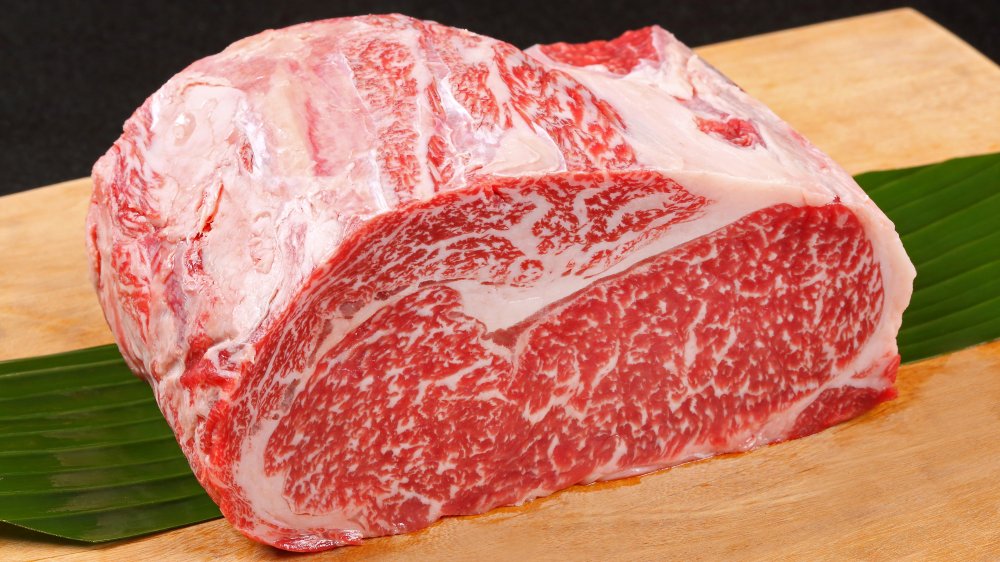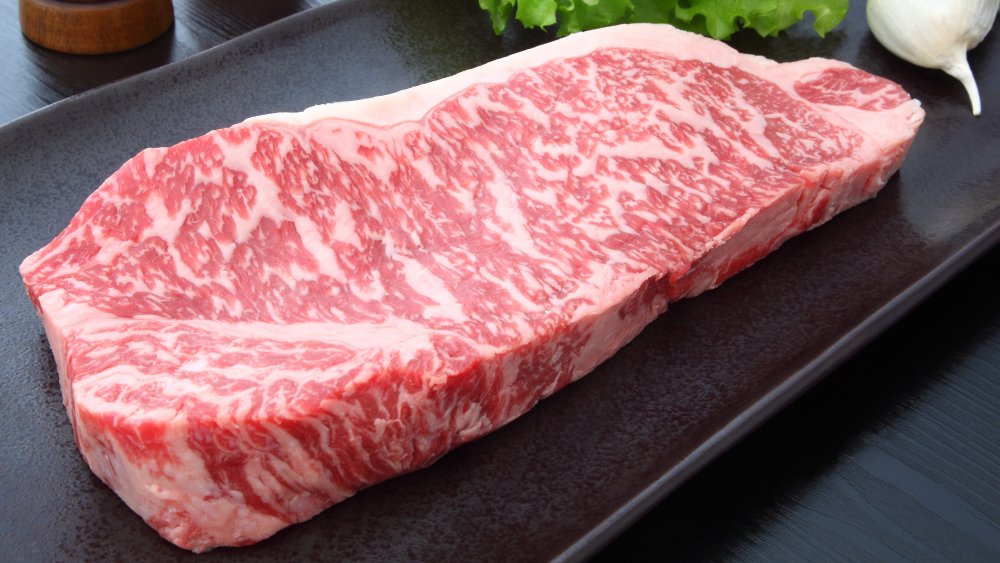Here's The Real Difference Between Kobe And Wagyu Beef
Wagyu and Kobe beef are both seen on dinner menus at high-class establishments. However, there tends to be a lot of confusion about the differences between the two and whether they're synonymous terms.
Wagyu simply means "Japanese cow," but it's not used to refer to just any old cow, but a specific number of purebred breeds which were bred for their fatty marbling (via American Wagyu Association). While some of these cows have been shipped to the United States and bred with local cows, true Wagyu beef is considered to be from Japan exclusively. In fact, the United States Department of Agriculture considers beef to be Wagyu if it's comprised of at least 46.875 percent of one of the four purebred Japanese breeds: Japanese Black, Japanese Shorthorn, Japanese Polled, and Japanese Brown (via Food & Wine).
Kobe beef is a subset of Wagyu, but whereas there's some gray area when it comes to American Wagyu, Kobe, by definition has to come from Japan. It originates in the Japanese prefecture of Hyogo where the city of Kobe is located (via Japan Guide). Additionally, all Kobe beef comes from the Japanese Black cow breed known as Tajima.
Finding Japanese beef in the United States
Given the fact that true Wagyu comes only from Japan and farmers provide their cows with the absolute best, you can expect a hefty price tag. Entire cows can sell for $30,000 and a steak can easily go for three Benjamins (via Business Insider). Don't think that going to Japan and eating the beef at the source makes it any cheaper. Meals at teppanyaki restaurants specializing in Wagyu can range from around $80 to $300.
For many years in the United States, only "Kobe-style" beef was available on menus since in 2009 the United States Department of Agriculture banned all beef from Japan because of an outbreak of foot and mouth disease (via The New York Times). However, some unscrupulous restaurants took advantage of unsuspecting customers and charged them astronomical amounts for what was certainly not Kobe beef (via Forbes). Beef lovers rejoiced when, in 2016, the ban was reversed and distributors across the country began carrying the luxury product.

